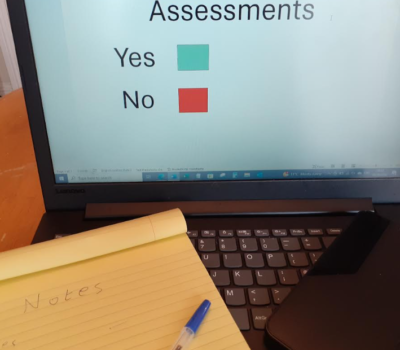


Our team sorts through all blog submissions to place them in the categories they fit the most - meaning it's never been simpler to gain advice and new knowledge for topics most important for you. This is why we have created this straight-forward guide to help you navigate our system.


And there you have it! Now your collection of blogs are catered to your chosen topics and are ready for you to explore. Plus, if you frequently return to the same categories you can bookmark your current URL and we will save your choices on return. Happy Reading!
In terms of historical subjects with plenty of information to dig into, the Romans definitely qualify. Starting out as a small civilization among many, they would go on to conquer and rule the entire Mediterranean at the height of their power. Even after their empire split in two and the western half dwindled and fell, the legacy of the Roman Empire would live on for another thousand years in what would become known as the Byzantine Empire. But, even if you’re just focusing on teaching about the era before the empire split, there are plenty of topics to cover. So, where should you get started?

Traditionally, the beginning is considered the best place to start, but this proves a bit tricky with the Romans. This is because of the various sackings which Rome suffered in the twilight days of the Western Empire destroyed whatever historical records existed regarding their founding. So, the only surviving account of Rome’s founding comes from the story of Romulus and Remus which, if it has any truth to it, is clearly a highly mythologized account of what actually happened.
Instead, a more reliably documented starting point would be when the Romans deposed their last king; Lucius Tarquinius Superbus, also known as Tarquin the Proud. Ruling from, roughly, 535 BC to 509 BC, he was considered a cruel and tyrannical ruler who was disliked by both the aristocracy and the general population. Following the revolt which deposed him and sent him into exile, Rome became a republic. This new form of government was designed to ensure that no one person had too much power (which would work… for a time). This was the point where Roman society started to become what most people are more familiar with.
Possibly the largest topic you can cover when teaching about the Romans, is their military. Even before becoming an empire, Rome had conquered a lot of territory. The Romans believed that they would lose the favour of the gods if they fought an unrighteous war, so they held that they should only engage in war for the defence of Rome. That being said, the Romans stretched the term ‘defence’ as it owed them money. Many of their conquests were justified as preemptively dealing with future threats to Rome. And the wealth that came flowing in from their new provinces ‘proved’ that they must still have the gods’ favour, so they kept on doing it. This massive amount of wealth allowed them to build Rome into one of the most wonderful cities of the time.
Of course, expanding as far as places like Britain meant that Rome had to consider how to handle the beliefs of these other cultures. Obviously, simply demanding that these people worship their gods would only stir up rebellion. But, allowing the worship of gods different to their own wasn’t acceptable either. They got around this by means of ‘syncretism’, which was pairing similar gods from each pantheon and asserting that they were the same god.
I could go on further with this, as the Romans are a huge topic, regardless of what age the students you’re teaching are. But this is also a topic that should have something to catch the interest of most students.

The author

Read more

Read more

Read more

Read more

Read more

Read more

Read more

Read more


Are you looking for solutions? Let us help fund them! Nexus Education is a community of over 11,000 schools that come together to share best practise, ideas and CPD via online channels and free to attend events. Nexus also offers funding to all school groups in the UK via nexus-education.com


Established in 2011, One Education is a company at the heart of the education world, supporting over 600 schools and academies. Our unique appeal as a provider is in the breadth and synergy of the services we offer, supporting school leaders, teachers and support staff to achieve the best possible outcomes for their pupils and staff.

School Space is a social enterprise that has empowered schools for over 12 years through their profitable and hassle-free lettings services. So far, they’ve generated over £5 million in revenue for education, helping to connect over 200 schools with their local communities.


Unify is an online sales and marketing tool that allows users to create tailored personalised documents in moments.


There’s nothing special about the energy we sell. In fact, it’s exactly the same energy as all our competitors provide. But there is something special about the way we do it. Where others complicate the process, we simplify it. Where others confuse customers with hidden terms, we’re an open book. And where others do all they can to make as much money from their customers as possible, we do all we can to make as little. Everything we do, we do it differently. Our customers are a privilege. One we’ll never take advantage of.


Securus provide market-leading monitoring solutions to safeguard students on ALL devices both online and offline. We also offer a full monitoring service, where we carry out the monitoring on behalf of the school, freeing up valuable staff resources. From the smallest school to large MAT groups, Securus offers safeguarding protection for all!


Bodet Time offers dedicated solutions to education through lockdown alerts, class change systems, PA and synchronised clock systems. Improving time efficiency of the working and school day; ensuring safety through lockdown alerts; increasing communication with customised broadcast alerts.


Robotical makes Marty the Robot - a walking, dancing coding robot that makes programming fun and engaging for learners as young as 5. Our robots come with a full Learning Platform that has complete teaching resources, to make lesson planning a breeze.